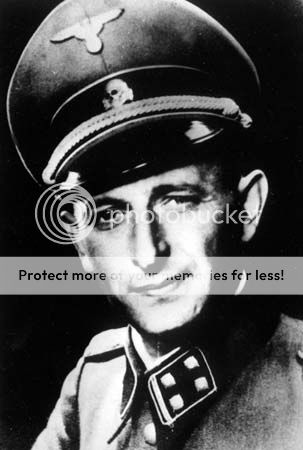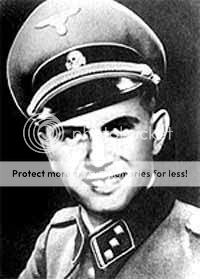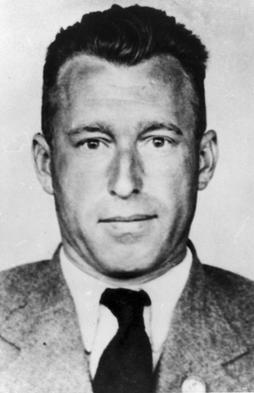 I just finished watching an episode of the
new BBC series of Father Brown. (Spoiler alert). The victim it turns out was a
Nazi killer and the criminal one whose family he killed. Both spend time
dressed as a Catholic priest. Escaped Nazis in England? The Catholic Church as
a haven for killers? Both are true, as detailed by Guy Webster in his excellent
Hunting Evil: How the Nazi war criminals escaped and the hunt to bring them to justice.
I just finished watching an episode of the
new BBC series of Father Brown. (Spoiler alert). The victim it turns out was a
Nazi killer and the criminal one whose family he killed. Both spend time
dressed as a Catholic priest. Escaped Nazis in England? The Catholic Church as
a haven for killers? Both are true, as detailed by Guy Webster in his excellent
Hunting Evil: How the Nazi war criminals escaped and the hunt to bring them to justice.
I am fascinated with Nazi Germany. A
cultured highly educated nation, whose leaders appreciated art, poetry and
classical music were between them responsible for one of the greatest horrors
ever perpetrated upon by one set of human beings upon another. World War Two
was bad enough, but the Holocaust, the systematic and deliberate attempt to
wipe a group of people to the last individual off the earth was unprecedented
and so far unreplicated. There have been other genocides but none so deliberate
and priortised. It has been argued if the Nazis were not so anti-Semitic, the
released resources could have seen them win the war. In other words, the top
priority of Nazi Germany, as they ran a country and a war, was to kill every
Jew on the planet. To do this, they sacrificed both the country and the war.
The full extent of the crimes against
humanity took a long time, years, decades in some cases, to become apparent, in
part due to their extent. Even so, during the war, the Allies declared that
they would hunt the criminals to the ends of the earth. In practice, once
Germany was defeated, priorities changed. No-one will be surprised to find that
counties such as Argentina, Syria and Paraguay were happy to forget about Nazi
atrocities as it suited them. It is a little more startling to find Britain,
the United States, France and Soviet Russia, doing the same.
In his introduction, Webster says he
considered changing his title to ‘Hunting Evil - or not.’ Once the Second World War was over, priorities
changed. The Allies were now split, the Communists trying to overthrow the West
and vice versa. This was their top priority, and if it meant using Nazi war
criminals for their expertise in espionage and knowledge of the other counties,
they would do so. Which is not to
say there were not other parts of the same governments trying to bring Nazi
criminals, often the same individuals, to justice. But the necessary resources
of personnel and money were never made available. People driven by a sense of
justice were left dangling.
Speak of Nazi hunting and Simon Wiesenthal
comes to mind. For decades he was
the face of trying tobring justice to those who had escaped. Sadly, as Walters
shows, many of his achievments, the dramatic incidents in his life, were the
stuff of exaggeration, even fantasy. His organisation claimed to have captured
over a 1000 Nazis. In truth, they captured ten, and the information they
provided to other organisations was often little more than rumour. They did
give some support to the capture of Eichmann, more to the capture of Stangl,
but even then Wiestenthal exaggerated, eventually putting himself in a wrestle
with Eichmann in Argentina. But for all his faults he did keep the issue in the
world’s eye, and made sure that time would not erase the memory of the crimes.
 Nor was he alone in his misinformation
about Nazi escapees. In the 80s, the US and Israelis finally put some real
effort and money into hunting down Josef Mengele. Wiesenthal gave them
information Mengele was here, now here, now here. But Mengele was already dead
and buried. The money and effort that they put in went to finding a four-foot
deep grave in a Paraguayan jungle.
Nor was he alone in his misinformation
about Nazi escapees. In the 80s, the US and Israelis finally put some real
effort and money into hunting down Josef Mengele. Wiesenthal gave them
information Mengele was here, now here, now here. But Mengele was already dead
and buried. The money and effort that they put in went to finding a four-foot
deep grave in a Paraguayan jungle.
Other myths get busted here too, notably
ODESSA, the organisation that ran Nazis out of Europe and into safe havens. It
probably never existed, certainly not as the professional rich organisation in
Frederic Forsyth’s book. Escape groups did exist but were small, ad hoc, and
more in the nature of mates helping mates. The notorious Bishop Hudal, the
priest who hid and aided many Nazis as they went through Rome was oddly
motivated by what sounds like Marxists ideals: the war was a conflict between
two economic systems and the actions of individual soldiers should not be cause
for their punishment. Among the people helped to escape was Franz Stangl, later
convicted for co-reponsibility for 800 000 deaths. It is entirely possible that
Hudal did not know who Stangl was, or what he had done. Not many people did. By
the time Stangl was publicly identified as the commandant of Treblinka and
Sobibor, he was already in Brazil.
 Stangl never changed his name. His wife
sent mail back home to Austria, telling their friends where they were. They
registered with the Austrian embassy. Yet even when his crimes became apparent,
his friends did not betray them and the government, it seems, did not even run
a check through their files. He was arrested finally in 1967. Even Mengele
registered at a West German embassy, giving his real name and address. This is
the most disturbing aspect of this book, the widespread lack of will from
governments, churches and individuals, to do anything. And such will as existed
is fading. We have had other wars, other attrocities. Do we try and bring
justice? Or do we try to use moral relativism to reduce our responsibility to
do something, as was attemped by Klaus Barbie’s defence lawyer? Or do we wait
till the criminals are old or dead, and say, no matter how monstrous their
crime, ‘it was all so long ago, it’s just not worth it’?
Stangl never changed his name. His wife
sent mail back home to Austria, telling their friends where they were. They
registered with the Austrian embassy. Yet even when his crimes became apparent,
his friends did not betray them and the government, it seems, did not even run
a check through their files. He was arrested finally in 1967. Even Mengele
registered at a West German embassy, giving his real name and address. This is
the most disturbing aspect of this book, the widespread lack of will from
governments, churches and individuals, to do anything. And such will as existed
is fading. We have had other wars, other attrocities. Do we try and bring
justice? Or do we try to use moral relativism to reduce our responsibility to
do something, as was attemped by Klaus Barbie’s defence lawyer? Or do we wait
till the criminals are old or dead, and say, no matter how monstrous their
crime, ‘it was all so long ago, it’s just not worth it’?
I have a theory why we are so ready to call
someone like George Bush Jr or John Howard a Hitler, though the comparison is
ludicrous. It comforts us to think that if someone like Hitler were to come
along again, we would be among those who would resist him. But the truth is,
most people in Germany, even if they did not agree with the Nazis (they never
won an election outright) went along. It took extraordinary people to resist. We are the 99%, or so we’ve been told
lately. 99% went along. And given the chance to punish the Nazis, after a brief
outburst of justice, most people slung it into the ‘too hard’ basket. The Nazis
fascinate because they are humanity at its worst. And the reactions of the non-Nazis, German, Austrian, and
from every other country, could have been ours. I don’t know I would have
resisted. And that thought terrifies me.

